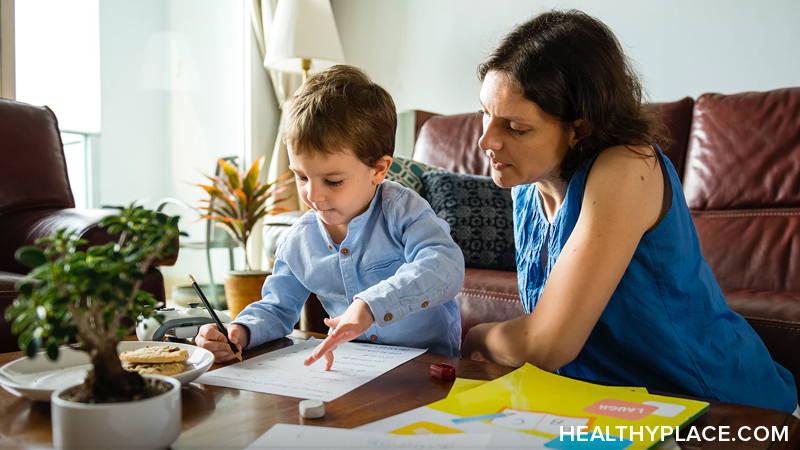Parenting Goals and Expectations Must Pass the Reality Test

Having parenting goals and expectations for your children is an important part of raising kids in a way that follows your values. It’s essential, though, that those goals and expectations be realistic. Trying to live up to standards that are impossible to meet is harmful to everyone’s mental health—parents and kids alike. It’s possible to find a balance between setting parenting goals and expectations for your children that are too exacting and setting the bar so low that you feel that you’re not doing what you want to do as a parent. Let’s look at realistic goals and expectations that are healthy for your family.
While each family is unique and parents will create goals and expectations that work for their own family, there are certain key elements of goalsetting that are universal. First and foremost when creating parenting goals and expectations for your kids, think of the three Rs:
- Relationship: The quality and integrity of your relationships with your children is paramount and serves to guide you in your goals.
- Respect: Mutual respect is important for healthy family functioning. It’s a two-way street with parents and kids showing each other respect in their words and actions.
- Reframe: Replacing a demand for perfection with acceptance of imperfection and the attitude that things are “good enough” helps ensure that goals and expectations pass the reality test.
With these principles leading the way, you’re ready to create expectations and goals.
Creating Realistic Parenting Goals: Values and Your Big Picture
Often, parents set parenting goals that focus on day-to-day demands of child-raising. Many goals deal with discipline approaches, how to enforce expectations, and other structured approaches to daily life.
Such aims are fine to incorporate, but they’re incomplete. When shaping your goals for how you’ll parent your child, think of the bigger picture. How do you want your relationship to be now, as they grow, and when they’re off on their own as adults? Centering on your quality relationship with your kids will help keep your goals realistic, for if they’re too exacting, they’ll risk damaging the positive relationship you’re working to build and preserve.
Use these guidelines for creating realistic parenting goals for yourself:
- Identify your core values regarding how you want your kids to be. Honest? Responsible? Active in the community? Life-long learner? Your values will shape your goals and actions.
- “Discipline” means to teach rather than to punish. With that in mind, how do you want to discipline your children? How will you reinforce what’s important?
- How do you want to be with your kids? How do you want to make them feel?
- How will your kids know that you respect them? How will you know when your kids are respecting you?
Spending time developing and clarifying your parenting goals and values will help you move to the next step. Those goals will shape the expectations you have for your kids.
Have Expectations for Your Kids That Pass the Reality Test
Expectations are what we require of our children both short-term (daily) and long-term (through the years as they grow and develop). These can be tricky to create. If they’re undefined or too lax, kids will believe that rules are unimportant or that they’re not good enough to uphold them. This can negatively affect self-esteem, motivation, and behavior.
On the other hand, if parental expectations are too high, beyond what kids that age are capable of, children can become frustrated, discouraged, and give up. Like expectations that are too low, those that are too high are harmful to children and the relationship they have with you.
For secure, emotionally healthy development, kids need to know that they’re accepted and that they’re simply good enough. Part of a parent’s job is to foster a safe and nurturing environment for their kids. Unrealistic expectations do the opposite. They communicate that kids must be perfect; anything less than that will be met with disapproval and negative consequences. In time, this creates a rift between kids and parents, and kids become less and less likely to come to parents for help or to confide in them.
Ensure That Parenting Goals and Expectations Pass the Reality Test
As you shape your parenting goals and expectations, continue to return to the three Rs. By forming everything around your relationship with your children, mutual respect, and a willingness to reframe expectations from a need for perfection to an acceptance of “good enough,” you’ll create a healthy, happy home environment in which your children learn responsibility while feeling valuable and safe to be themselves.
Goals and expectations pass the reality test when kids strive to meet their parents’ expectations while knowing that they can make mistakes. That is one of the biggest parenting goals of all.
See Also:
APA Reference
Peterson, T.
(2022, January 11). Parenting Goals and Expectations Must Pass the Reality Test, HealthyPlace. Retrieved
on 2025, April 29 from https://www.healthyplace.com/parenting/parenting-skills-strategies/parenting-goals-and-expectations-must-pass-the-reality-test



